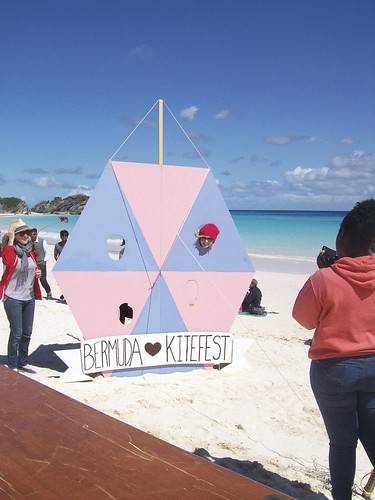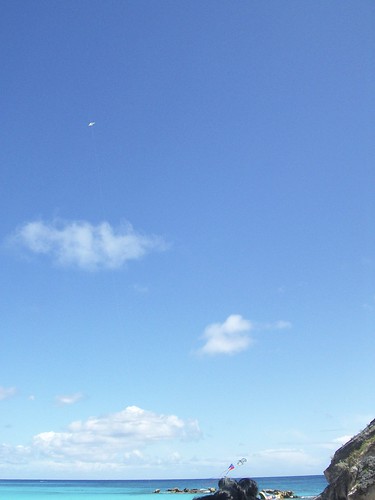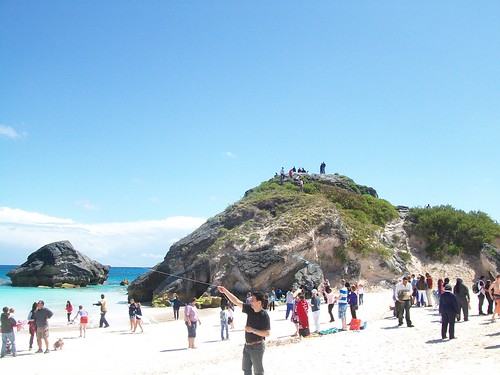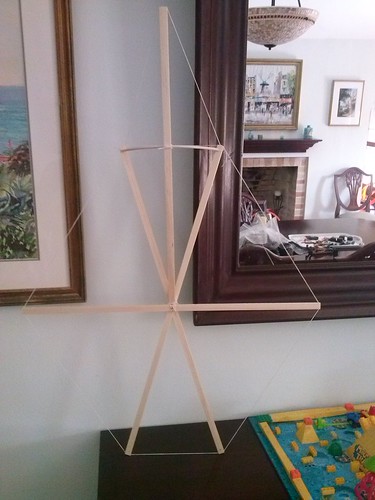Homemade wooden kites, hot cross buns, fish cakes, and pink sandy beaches; these are the images called to mind when envisioning Good Friday celebrations on the island of Bermuda. A conservative island by nature, Good Friday traditions live on here. School children spend weeks constructing their kites; the more traditional, the better. There is no room for manufactured kites or kits you bought that contain plastic pieces. Just wooden dowels, string, and tissue paper will be allowed.

This festive and free event is held every year at Horseshoe Beach, Southampton Parish and starts at 10:00am. This year, the day will also hold the island’s largest kite competition. There will be prizes awarded for everything from Biggest Kite, Best Design, Loudest Kite, and even Ugliest Kite.

Music, held in high regard at Bermuda festivals, will feature live artists performing traditional folk music, reggae, gospel, and African Dance. The Gombeys will also make their appearance for the traditional event.

Traditional Bermuda Kites
Bermuda, beginning as a Christian island, still follows the tradition of flying a kite to represent the day the Jesus Christ was resurrected. The wooden dowels form a cross to maintain the shape and form of the kite. This shape represents the cross Jesus died on. The flying of the kite represents Jesus rising from the dead to ascend into heaven. Bermuda kites are simple circular or hexagonal patterns made from wooden dowels (traditionally fennel reeds), and then covered in tissue paper. The placement of the tissue paper is very important because if done right, they will make a buzzing noise. This buzzing noise can be heard for almost a week before Easter as school children test out their kites in the neighborhoods.


The following video features the “Kite King” Vincent Tuzo explaining traditional Bermudian kite making.
Fishcakes and Hot Cross Buns
A traditional Good Friday meal in Bermuda consists of fishcakes and hot cross buns. Hot cross buns are a spiced sweet bun marked with the shape of a cross across the top and often containing raisins or currants. They have been, for centuries, associated with Good Friday across the world but traditionally in the UK, Australia, New Zealand, South Africa, and Canada. Bermudians, as a UK island, continue the tradition of eating hot cross buns on Good Friday morning. “Hot Cross Buns” is the name of a traditional English nursery rhyme sung by school children and traditionally a street cry from a hot cross bun seller. The song was first noted in 1733 but was published in London in 1789.
Traditional lyrics:
“Hot cross buns!
Hot cross buns!
One ha' penny, two ha' penny,
Hot cross buns!
If you have no daughters,
Give them to your sons
One ha' penny, Two ha' penny,
Hot Cross Buns!”
For a local island twist, hot cross buns are served containing a Bermuda fishcake. These fishcakes are made with local white fish, mostly wahoo, and are breaded then fried till they are crispy and delicious. Local restaurants start advertizing fishcakes and hot cross buns for weeks leading up to Good Friday. One ha’ penny or even two ha’ penny won’t get you far when trying to purchase hot cross buns these days; one fishcake and hot cross bun will set you back a few dollars but they’ll be worth it to satisfy this Good Friday craving.


Lindsey Lehman is the Bermuda Editor for Wandering Educators
All photos courtesy and copyright Lindsey Lehman
